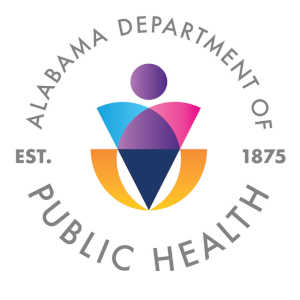Whether you’re in a 12-Step program or know someone who is, you may have heard about “taking a personal inventory.” But what exactly is a personal inventory and why is it important in addiction recovery?
What is a Personal Inventory?
A personal inventory in terms of addiction recovery refers to a reflective process where individuals examine their thoughts, feelings, behaviors, and relationships in a thorough and honest manner. It involves taking a good hard look at one’s actions, attitudes, and experiences, with a focus on identifying patterns that may contribute to addictive behaviors or hinder progress in recovery.
Taking a personal inventory is a key component of the recovery process for people who are in a 12-Step program. It is part of steps four and ten. In step four, individuals do an extensive moral inventory, writing down and analyzing all of their resentments, wrongs, and past mistakes. This step plays a powerful role in clearing one’s conscience and letting go of feelings one may have been holding onto.
But in step ten, individuals take a personal inventory each night, which helps them stay aware of their social and emotional well-being on a daily basis. It helps prevent returning to negative behaviors and promotes healthy habits.
Understanding the Purpose of Step 10
Step 10 in Alcoholics Anonymous (AA) states, “Continued to take personal inventory and when we were wrong promptly admitted it.” This step serves as a daily practice to reflect, acknowledge, and amend behaviors that may occur in addiction recovery.
Step 10 aims to prevent the buildup of negative emotions and conflicts that could jeopardize recovery. By routinely examining thoughts and behaviors, individuals can catch potential issues early, avoiding the accumulation of resentments or guilt that might ultimately lead to a drug or alcohol relapse.
Additionally, Step 10 facilitates a quick resolution when mistakes do occur. It encourages individuals to promptly admit their wrongs, encouraging integrity and emotional sobriety. This practice promotes both humility and accountability, which are crucial for maintaining healthy relationships and personal growth within the recovery community.
Step 10 also serves as a tool for emotional regulation and self-awareness. Regular self-assessment helps individuals identify triggers and vulnerabilities, empowering people in recovery to implement coping strategies and make healthier choices. It also reinforces spiritual growth, encouraging individuals to deepen their connection with a Higher Power or guiding principles.
How to Do a 10th Step
In order to do a thorough 10th step, it’s important to set aside time each day for self-reflection. Find a quiet space where you can be alone with your thoughts. A 10th step should be done carefully, not rushed through.
During this time of self-reflection, you’ll reflect on your thoughts, feelings, and actions since your last inventory. Be honest with yourself about any behaviors or attitudes that may have been harmful or counterproductive to your sobriety.
Write down any negative thoughts, emotions, or behaviors. If you’ve harmed someone else, consider how you should make amends. This may involve apologizing directly to the person or taking steps to rectify the situation.
Most importantly, if you’re struggling with a particular issue, don’t hesitate to seek guidance from a sponsor, mentor, or trusted friend in the recovery community. Every sponsor may ask you to do a 10th step a bit differently, so it’s essential to follow your sponsor’s advice and let their experiences guide you through the process. Your sponsor’s perspective can offer valuable insight and support into your situation and your recovery.
A 10th step usually concludes with a brief prayer or meditation.
While a personal inventory can involve some heavy feelings, it’s crucial that you don’t let these feelings overwhelm you. An inventory isn’t meant to punish you or make you ruminate on things you did wrong; it is there to help you improve yourself and your relationship with your Higher Power.
Why is a Personal Inventory Important in Recovery?
In addiction recovery, personal inventory serves several purposes:
- Self-awareness – Taking time for self-reflection helps individuals become more aware of their triggers, vulnerabilities, and emotional states that may lead to substance use or other harmful behaviors. For many people, it is an important task to help prevent relapse.
- Accountability – Personal inventory encourages individuals to take responsibility for their actions and choices, acknowledging the impact they have on themselves and others. By encouraging positive behaviors, personal inventory can encourage individuals to stay sober.
- Identifying patterns – By examining past behaviors and experiences, individuals can identify recurring patterns or themes that may contribute to their addictive tendencies. This awareness allows them to address underlying issues and make positive changes in their daily lives.
- Growth and self-improvement – Personal inventory fosters a mindset of continuous self-improvement and growth. It provides an opportunity for individuals to reflect on their strengths, weaknesses, and areas for development.
- Relationships – Examining interpersonal dynamics and relationships is an essential aspect of personal inventory. It allows individuals to assess the quality of their relationships and identify any toxic or unhealthy patterns that may need to be addressed. By taking a regular personal inventory, individuals can better nurture the positive relationships in their lives.
- Making amends – Personal inventory often involves reflecting on past mistakes and harm caused to others due to addiction. It provides an opportunity for individuals to make amends, apologize, and seek forgiveness where necessary. If someone conducts an inventory at the end of the day and realizes they owe someone an amends, they are able to do so promptly rather than allow strained relationships to fester.
By incorporating regular personal inventory into your routine, you can gain self-awareness, accountability, and personal growth, leading to a healthier and more fulfilling life in recovery.









